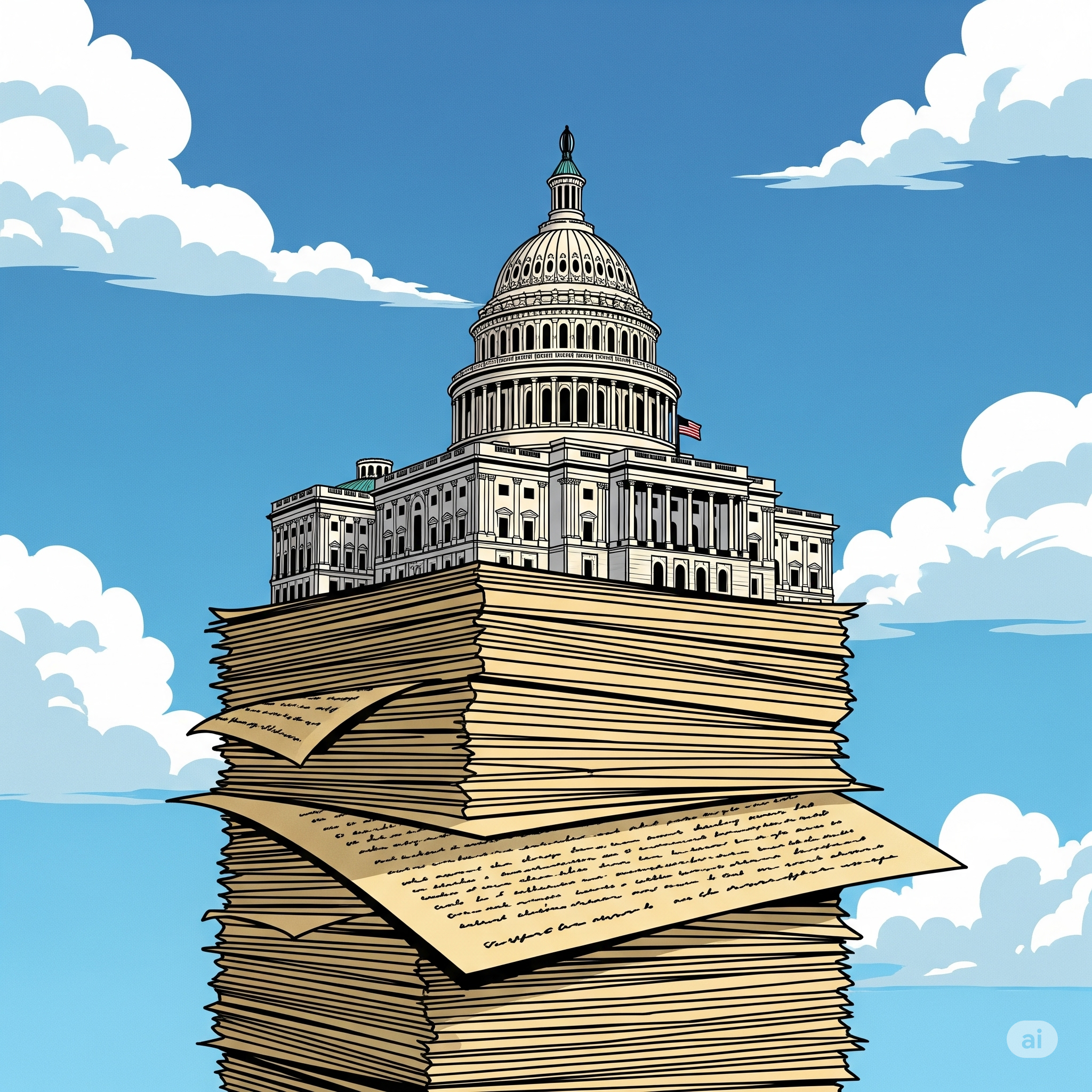"One Big Beautiful Bill": 21 Highlights That Matter
The “One Big Beautiful Bill” passed last week, and was over 1,000 pages long (read it for yourself!). It’s packed with new legislation and changes to the tax code.
First, a disclaimer- I’m not a CPA and this is not tax advice! YMMV on whether the bill applies to you!
Here are a handful of takeaways that jumped out to us from the "One Big Beautiful Bill":
Permanent Extension of Lower Tax Rates:
The reduced marginal tax rates from the 2017 Tax Cuts and Jobs Act (TCJA) are now permanent. Without this act, several tax brackets (below) would have seen increases:
12% bracket would have risen to 15%
22% bracket to 25%
24% bracket to 28%
32% bracket to 33%
37% bracket to 39.6%
Increased Standard Deduction:
For tax years through 2028, the standard deduction has been increased to $15,750 for single filers and $31,500 for joint filers.
Boosted State and Local Tax (SALT) Deduction:
The cap on SALT deductions has been raised to $40,000 from $10,000. It applies to taxpayers making $500k or less. This is a temporary measure, scheduled to revert to $10,000 in five years.
Higher Estate and Gift Tax Exemptions:
The bill permanently increases the gift and estate tax exemptions to $15 million for individuals and $30 million for married couples filing jointly.
The Government’s House Edge (or Hedge?) Against Gamblers:
The bill states that bettors will only be allowed to deduct 90% of their losses against 100% of their gains in any given year. This is a significant change to the current law that allows bettors to deduct 100% of losses against gains.
Full Bonus Depreciation for Businesses:
Businesses can now take 100% bonus depreciation on domestic capital expenditures for property, manufacturing equipment, structures, and software for four years, retroactive to the beginning of this year.
Permanent R&D Expensing:
The new law makes the immediate expensing of research and development costs a permanent feature of the tax code. This is designed to motivate the innovators.
No Tax on Tips or Overtime… To An Extent:
For tax years 2025-2028, taxpayers can exclude up to $25,000 in tip income and up to $12,500 in overtime pay from their taxable income. Income limits are set at $150,000 for an individual or $300,000 for a joint tax return.
Increased Child Tax Credit:
The Child Tax Credit is permanently increased to $2,200 per qualifying child.
New Tax Deduction for Seniors:
Individuals aged 65 and older can claim an additional deduction of $6,000 per person for tax years 2025 to 2028. This deduction phases out for higher-income earners.
Introduction of "Trump Accounts":
Starting January 1, 2026, parents can open new "Trump accounts" for children under eight. These accounts have an annual contribution limit of $5,000 (indexed to inflation).
Government Contribution for Newborns in Trump Accounts:
For newborns born between January 1, 2024, and December 31, 2028, the U.S. government will make a one-time $1,000 contribution to their Trump account.
Tax-Favored Withdrawals from Trump Accounts:
Qualified withdrawals from Trump accounts for expenses like education, a first home purchase, or starting a business are taxed as long-term capital gains.
Auto Loan Interest Deduction:
From 2025 to 2028, a deduction of up to $10,000 is available for interest paid on loans for passenger vehicles assembled in the U.S.. This replaces the $7,500 tax credit for electric vehicle purchases.
Expanded Uses for 529 Plans:
The bill permanently expands qualified distributions from 529 plans to include K-12 expenses, such as tutoring and curriculum materials, as well as post-secondary education expenses, including licenses and credentials.
Enhanced ABLE Accounts:
Eligibility for ABLE accounts is expanded to individuals disabled before the age of 46, an increase from the previous age limit of 26.
Tax-Free Employer Student Loan Assistance:
Employers can now provide up to $5,250 per year in educational assistance to an employee, and this amount can be excluded from the employee's gross income.
Increased Debt Ceiling:
The U.S. debt ceiling has been raised by $5 trillion, a move intended to avoid a potential government shutdown.
Lower Effective Corporate Tax Rate:
While the statutory corporate tax rate is unchanged at 21%, analysts project that the new expensing provisions will lower the effective corporate tax rate to between 12% and 14%.
Deficit Offsets:
To help limit deficits, the bill includes funding cuts to the Supplemental Nutrition Assistance Program (SNAP) and changes to Medicaid eligibility.
It also repeals or reforms tax credits associated with the Inflation Reduction Act, including those for electric vehicles.
National Debt Impact:
The Congressional Budget Office (CBO) estimates that the new law will add almost $3.3 trillion to the national debt over the next decade.
If you have specific questions about how the new bill will impact your finances and how you might be able to take advantage of it, schedule an appointment with us today

